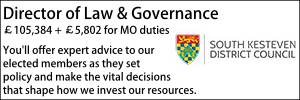EHRC defends approach to updating code of practice in light of Supreme Court ruling on interpretation of Equality Act
The chief executive of the Equality and Human Rights Commission (EHRC has defended the watchdog’s process of updating its code of practice for services, public functions and associations.
- Details
In a letter to The Times John Kirkpatrick also said the newspaper had been “premature” in reporting that it had already determined what will be in the guidance.
The original article in The Times, published earlier this month (7 August), reported that "schools, hospitals, leisure centres and cinemas will be told to ban trans women from using single-sex spaces including lavatories and changing rooms under equalities guidance to be submitted to ministers next month".
In his letter to the newspaper, Kirkpatrick wrote: “The article quotes extensively from the draft guidance issued for consultation in May. The purpose of consultation is to help us improve the text of the Code of Practice so that it is as clear and helpful as possible to those seeking to comply with the law. We have not decided what, if any, changes to make to the draft text, because we are still in the process of analysing the over 50,000 responses we have received.”
The letter also hit back at campaigners’ accusations that the EHRC was "ignoring" their views because it used artificial intelligence to categorise the replies to the consultation.
The EHRC said: “Our use of supervised AI technology alongside expert legal analysis is a responsible and widely-used approach that ensures we can give proper consideration to all responses whilst delivering the guidance that public bodies urgently need.”
In April, the UK Supreme Court addressed the interpretation of the Equality Act 2010 in relation to gender reassignment and sex discrimination.
In a detailed judgment, the Supreme Court analysed the definitions of “sex,” “man,” and “woman” in the 2010 Act, concluding that these terms refer to biological sex.
Following the Supreme Court’s decision, the EHRC published draft guidance on trans people’s use of toilets at work and in services, which has since been subject to criticism and legal action from campaign groups.
The letter from Kirkpatrick concluded: “There has been clear demand ever since the Supreme Court judgment from public bodies and others for guidance from us, as the regulator of the Equality Act, on how to interpret the law. We recognise our responsibility to respond to that. But it is right that we consult on the guidance we are proposing and right that we consider the responses to that consultation carefully. That is what we are doing. We are examining the responses carefully and will incorporate changes that are necessary and consistent with the law into our final draft.”
In November, the High Court is to consider a judicial review challenge over the EHRC’s draft guidance on trans people’s use of toilets at work and in services.
Alongside Good Law Project, the claimants allege that the EHRC’s interim update “misstates the law” and encourages employers and service providers to breach their legal duties under the Equality Act 2010, the Human Rights Act 1998 and the Gender Recognition Act 2004.
Lottie Winson
Police Misconduct & Vetting Solicitor
Locums
Poll
15-09-2025 10:00 am
08-10-2025 10:00 am








